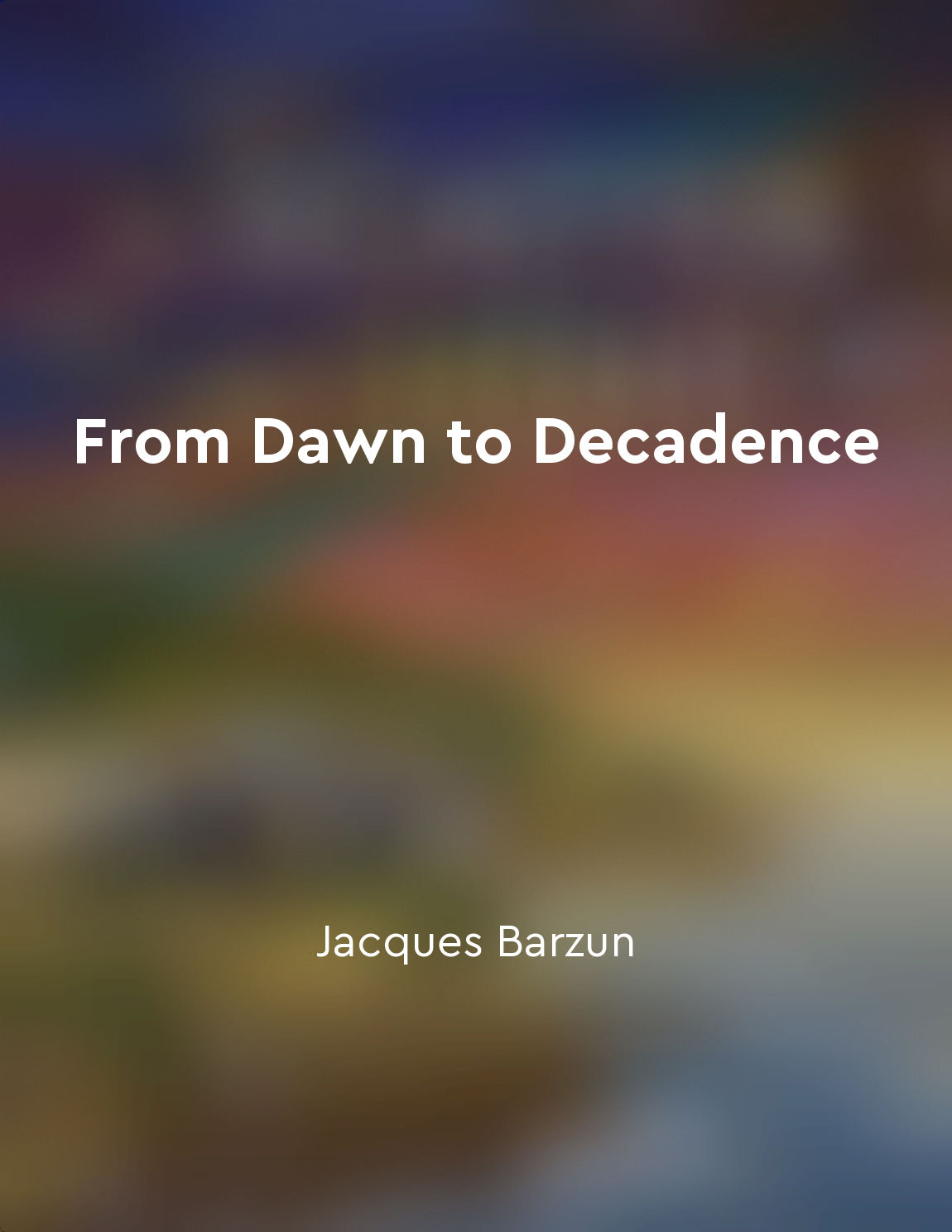The rise of secularism from "summary" of From Dawn to Decadence by Jacques Barzun
The rise of secularism can be traced back to the Renaissance, a period marked by a revival of interest in classical learning and a questioning of traditional religious beliefs. This intellectual movement paved the way for the Enlightenment, which emphasized reason and science over faith and superstition. During the Enlightenment, thinkers such as Voltaire and Rousseau championed the idea of a secular society, one in which religion was separated from government and individuals were free to pursue their own beliefs. This shift towards secularism was further solidified by the French Revolution, which sought to replace the authority of the church with the principles of liberty, equality, and fraternity. The Industrial Revolution also played a significant role in the rise of secularism, as advancements in technology and industry led to a greater focus on material progress and economic development. This emphasis on the tangible and the practical gradually eroded the influence of religion in people's lives, as they turned to science and reason to explain the world around them. The 20th century witnessed a further decline in religious adherence, as modernity and globalization brought about new challenges and opportunities. The increasing diversity and interconnectedness of societies meant that individuals were exposed to a wide range of beliefs and worldviews, leading to a more pluralistic and inclusive approach to spirituality. Despite the rise of secularism, religion continues to play a significant role in many people's lives, providing a sense of community, belonging, and moral guidance. However, the dominance of religious institutions has waned in the face of a more secular and rational worldview, one that values individual autonomy and critical thinking.- The rise of secularism can be seen as a natural progression towards a more rational, inclusive, and diverse society. While religion still holds sway in many parts of the world, the trend towards secularism reflects a broader shift towards individual freedom and intellectual independence.


